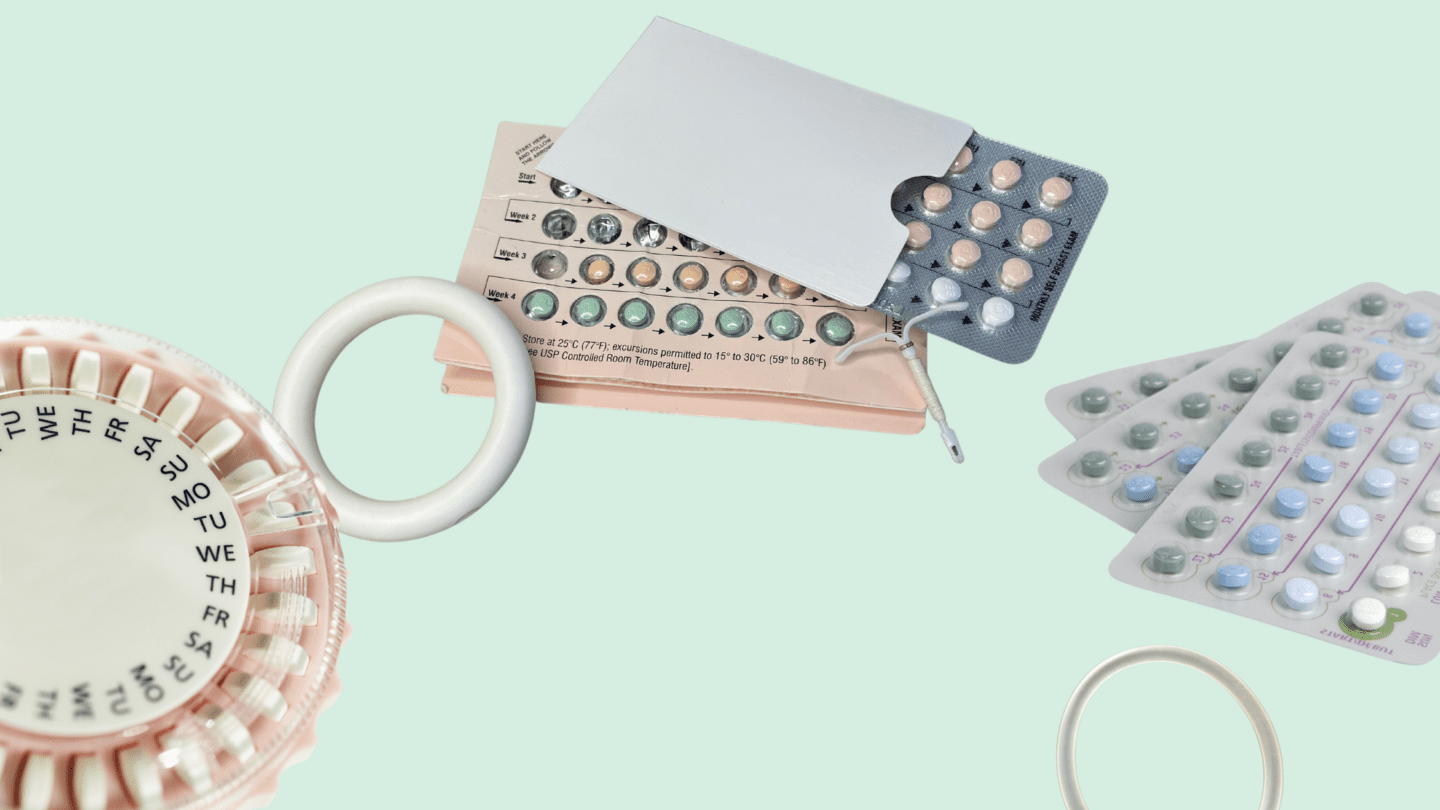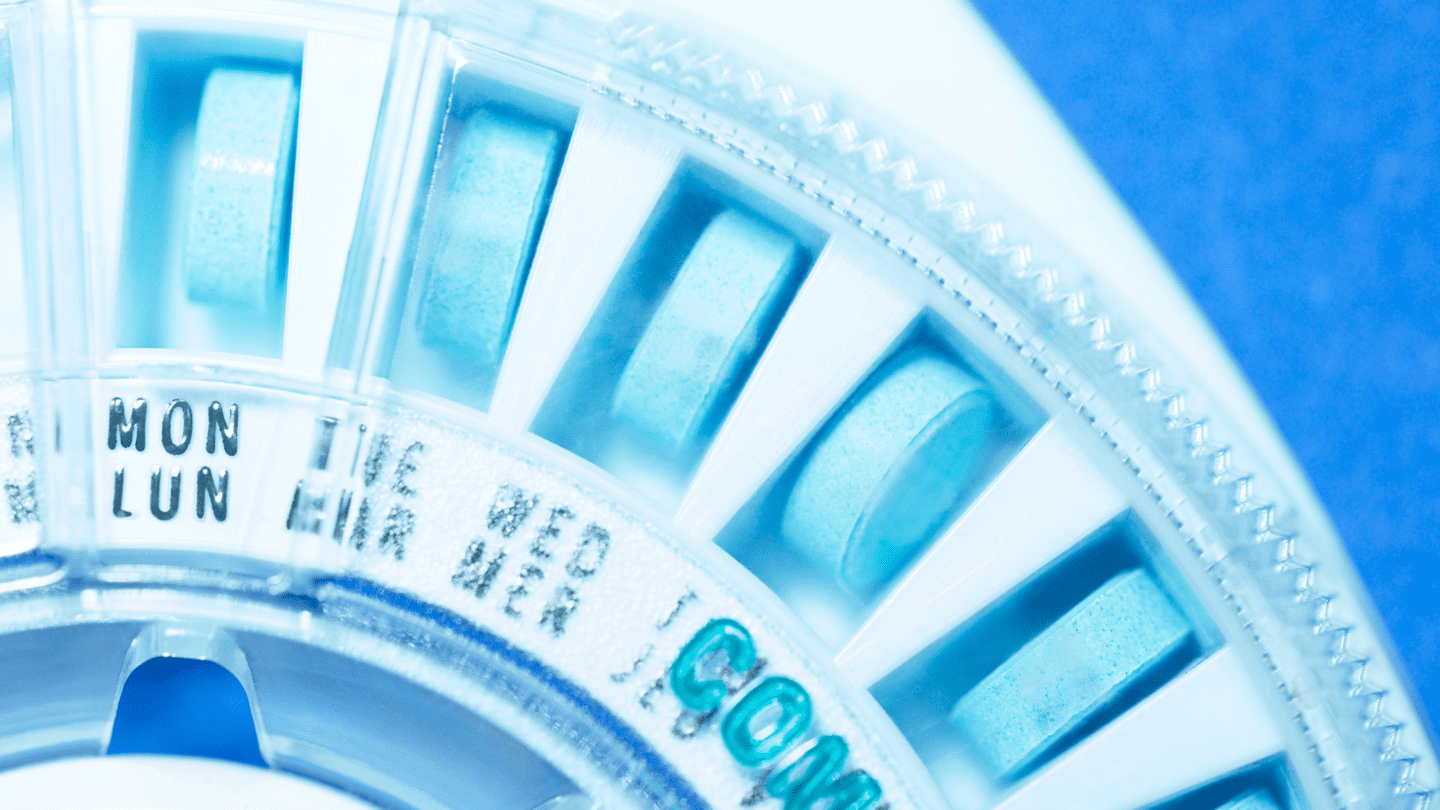So you took emergency contraception: Now what?
The bad news is you’ll have to wait to find out if you’re in the clear the old-fashioned way: Waiting to see if you miss your next period. You can (and should, if you think you might be pregnant) take a pregnancy test, too. But don’t take it right away — if you were to get pregnant, a few days isn’t long enough for it to show up on a test.
The good news? Emergency contraceptives are over 95% effective when taken properly. If you have just taken Plan B because you had unprotected sex or your original plan failed, take a breath: You have done the smartest thing you can at this point to prevent pregnancy.
How likely is it you’ll get pregnant after taking Plan B?
According to a 2010 study of women who took Plan B after having unprotected sex, it’s over 97% effective if you take it within 72 hours of having sex.1 The Plan B packaging itself says it’s 95% effective within 24 hours.2 That effectiveness drops the longer you wait. Plan B’s maker estimates that it’s only 61% effective 48 to 72 hours after sex, and even less so after that.2
The effectiveness of Plan B also seems to decrease as body mass index (BMI) gets higher. For many people, the subject of BMI can be uncomfortable to downright controversial, since it rates your “health” based on your ratio of height to weight. Still, it’s a metric that drug makers use when there’s reason to believe a drug is less effective for people who are overweight or obese.
Plan B is reportedly most effective for people with a BMI of 25 or lower.3 If you’re 5’4” (the average height for an American woman over 20), that’s 145 pounds or less.4 And it’s considered not effective for anyone with a BMI over 303 — 5”4’ and over 175 lbs.
If your BMI is between 30 and 35, the emergency contraceptive Ella is a better bet; if it’s over 35, a copper IUD (more on that in a moment) may be best. Talk to your doctor if you’re unsure which is right for you.
(You can calculate your BMI by entering your height and weight here.)
Your chance of getting pregnant — regardless of whether you’ve taken an emergency contraceptive — also varies a lot depending on where you are in your cycle.5 Eggs last less than 24 hours after ovulation,5 so there’s a fairly small window each month that pregnancy is likely. But sperm can live for five days in the ,5 so the pregnancy risk of having unprotected sex starts five days before ovulation and ends a day or so after.
As a rule of thumb, your “fertile window” is days 7-20 of your 28-day cycle.5 You can count from the first day of your last period (day 1) to see where you’re at. If you’re in your fertile window, it’s extra important to pursue emergency contraception if you had unprotected sex and don’t want to get pregnant. But ovulation can vary a lot, even if your period is super regular, so don’t put too much stock in these specific numbers.6
Because your fertility changes with your cycle, you might consider different emergency contraceptive options at different times of the month.
Because your fertility changes with your cycle, you might consider different emergency contraceptive options at different times of the month. For instance, if you just finished a period when you had sex, it’s more likely you haven’t ovulated yet. So a hormonal contraceptive like Plan B is a great option for preventing pregnancy.
Is adyn right for you? Take the quiz.
But the closer you are to your next period starting, the more likely it is that you already ovulated. In those cases, a different form of emergency contraception is much more effective: a copper IUD.7 These work by targeting the sperm instead of the eggs. The copper safely changes the chemical composition of your , which can kill sperm, prevent fertilization, and prevent a fertilized egg from implanting.8 It’s over 99% effective when used as emergency contraception,9 and it’s not affected by your cycle. When in doubt: Talk to your doctor. Even if you already took Plan B, you may still be able to get a copper IUD to prevent pregnancy. (You heard that right: If you had sex and think there’s a chance you could get pregnant, you can get a copper IUD inserted to prevent the pregnancy from happening — but this requires acting quickly!)
Like what you’re reading? Get the latest straight to your inbox 💌
How Plan B works
Plan B contains a high dose of a synthetic called levonorgestrel which prevents your from releasing an egg.10 If there’s no egg, there’s nothing for sperm to fertilize, so you can’t get pregnant.
It’s also important to know that Plan B doesn’t terminate a pregnancy.10 If you’re already pregnant, Plan B isn’t an abortion pill. That’s why you should try to take Plan B no more than 72 hours after having sex, and less if possible — it doesn’t work if you’re already pregnant.
How to know if Plan B worked
After taking Plan B, it’s tempting to try and guess what’s happening in your body based on how you feel, but unfortunately you won’t be able to tell if it worked or not right away.
Some of the earliest signs of pregnancy are the ones linked to hormonal changes in your body, like breast tenderness, nausea, fatigue, or moodiness. But Plan B can cause similar symptoms!12 If you’ve taken Plan B, there are no symptoms that will be a sure sign of whether it worked. The only way to know is to wait until your next period or to take a pregnancy test. If you’re feeling anxious, you can take some pregnancy tests as early as six days before your expected period date.
Why you need to wait to take a pregnancy test
Plan B is only 95% effective. That means there is a chance that you were unlucky and had already ovulated — that is, were at peak fertility — right before you had unprotected sex. (You can check an ovulation calculator, too, to see if you fit this description.) Even if you use Plan B as directed, you could be in the 5% non-effective group.
If you do get pregnant, here’s what happens in your body next, and why you have to wait a few days before you can take a pregnancy test.
First, the egg released by your will be fertilized by a sperm in your fallopian tube.13 It can then take up to nine days for the fertilized egg to implant into your .13 This triggers the growth of the placenta, which starts making a called human chorionic gonadotropin, or hCG, which shows up in your urine.13
A certain level of hCG needs to be present in your urine before a pregnancy test can actually detect it. The delay of a few days each for fertilization, implantation, and hCG production is why you have to wait so long after sex before you can take a pregnancy test and expect real results.
How long do you have to wait to take a pregnancy test? Some pregnancy tests say you can start testing as early as six days before your period (that is, five days before your missed period), like Clearblue and others that bill themselves as “early detection.” Regular pregnancy tests are the most accurate if you wait till your period is supposed to start (after hCG levels are higher and easier to detect).14
That can sound like a long time to wait for answers if your period is still weeks away, but remember, if you were just coming off your period when you had sex, you may not have been in your fertile window yet. You should still keep an eye on things, but you might rest a little easier.
It can be a long wait
If you’re reading this article, odds are you’ve taken a morning-after pill and are anxious to learn if you’re pregnant. Know that many people have been in your position before you, and understand how you feel. It’s normal to feel worried. Try to take care of yourself, and talk to your doctor if you want more information or more help.
Remember: If you took Plan B on time, and are within its recommended weight range, it’s very effective. It’s also worth noting that if you take plan B and still get pregnant, it won’t terminate the pregnancy, and it won’t harm you or the fetus.15
And remember, emergency contraceptives should only be used in emergencies. If you’re sexually active and don’t want to get pregnant, we strongly recommend finding a highly effective that’s right for you. Uncertainty is stressful, and a highly effective can mean peace of mind no matter what happens.
Like what you’re reading? Get the latest straight to your inbox 💌
-
- Glasier, Anna F., et al. “Ulipristal acetate versus levonorgestrel for emergency contraception: a randomised non-inferiority trial and meta-analysis.” The Lancet 375.9714 (2010): 555-562.
- Plan B. “Frequently asked questions.” PlanB.ca (N.D.): Last accessed 2022 Mar 08.
- Planned Parenthood. “Emergency Contraception.” PlannedParenthood.org (N.D.): Last accessed 2022 Mar 08.
- CDC. “Adult BMI Calculator.” CDC.gov. (2022 Jan 21): Last accessed 2022 Mar 08.
- MedlinePlus [Internet]. “Pregnancy – identifying fertile days.” Bethesda (MD): National Library of Medicine (US) (updated 2022 Feb 18): Last accessed 2022 Mar 08.
- Wilcox, Allen J., David Dunson, and Donna Day Baird. “The timing of the “fertile window” in the menstrual cycle: day specific estimates from a prospective study.” BMJ 321.7271 (2000): 1259-1262.
- Goldstuck, Norman D., and Dirk Wildemeersch. “Practical advice for emergency IUD contraception in young women.” Obstetrics and Gynecology International 2015 (2015).
- Vo, Megan. “Long-Acting Reversible Contraception in Adolescents” Reference Module in Biomedical Sciences (2021). Via “Copper Ion” on ScienceDirect last accessed 2022 Mar 08.
- UCSF. “Copper IUD as EC.” BeyondThePill.ucsf.edu (N.D.): Last accessed 2022 Mar 08.
- Haeger, Kristin O., Jacqueline Lamme, and Kelly Cleland. “State of emergency contraception in the US, 2018.” Contraception and Reproductive Medicine 3.1 (2018): 1-12.
- Mayo Clinic Staff. “Symptoms of pregnancy: What happens first.” MayoClinic.org (2021 Dec 03): Last accessed 2022 Mar 08.
- Mayo Clinic Staff. “Morning-after pill.” MayoClinic.org (2020 Jun 19): Last accessed 2022 Mar 08.
- Healthwise Staff. “Human Chorionic Gonadotropin (HCG).” University of Michigan Health (2020 Oct 08): Last accessed 2022 Mar 08.
- Planned Parenthood. “Pregnancy Tests.” PlannedParenthood.org (N.D.): Last accessed 2022 Mar 08.
- American College of Obstetricians and Gynecologists. “Emergency Contraception.” ACOG.org (2021 Nov): Last accessed 2022 Mar 08.









